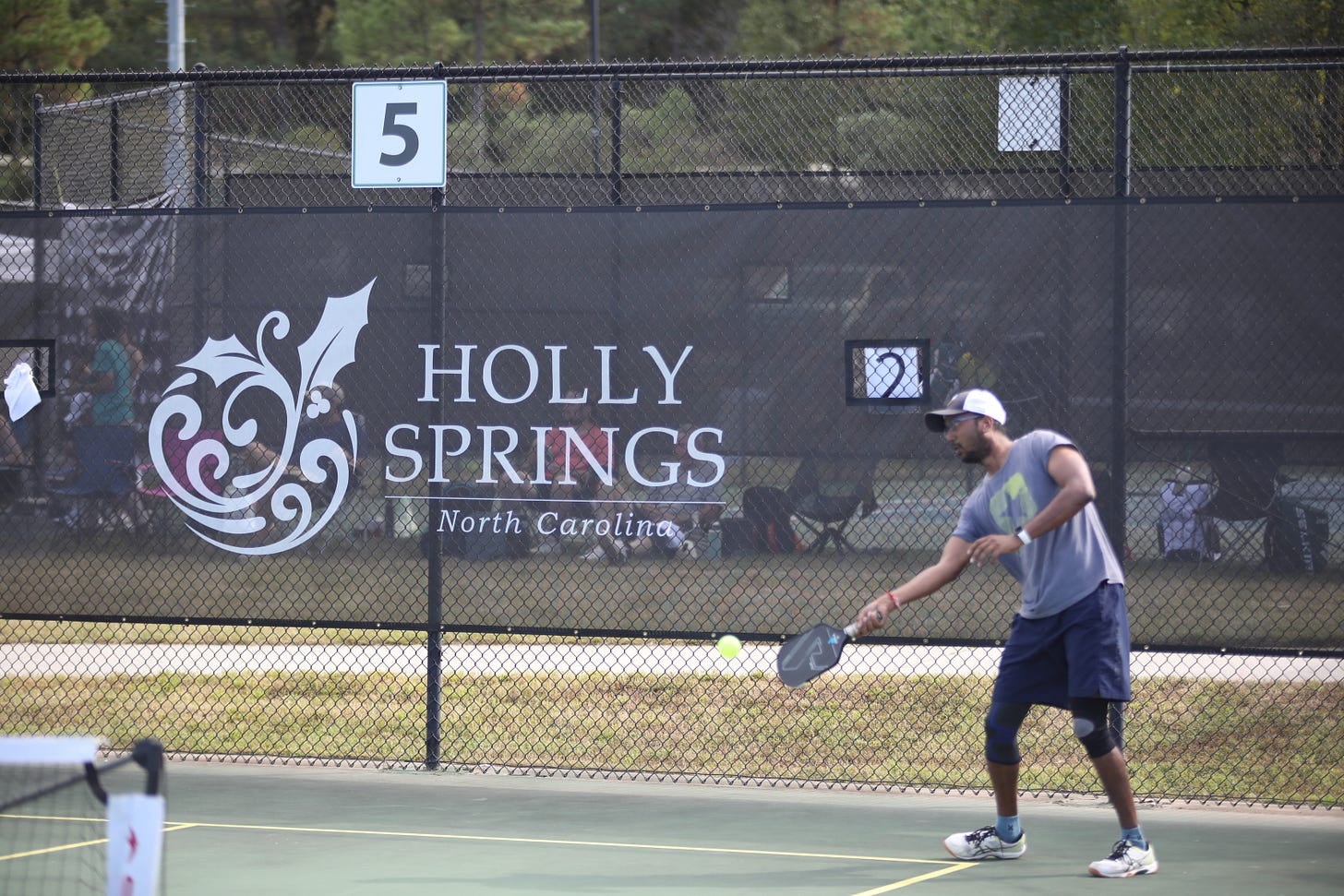Wake County (NC) Commissioners Weigh Delays and Trade-Offs as Park Project Costs Escalate
Rising construction costs force Wake County commissioners to reshuffle priorities in the 2018 parks bond, delaying two projects while reaffirming others as neighboring counties face similar pressures
Raleigh, NC, Oct. 14, 2025 — Wake County commissioners spent yesterday’s work session confronting a challenging truth: the 2018 Parks, Recreation & Open Space bond can no longer fund every project as planned.
During the meeting, Chris Snow, director of Parks, Recreation & Open Space, outlined how inflation, pandemic-era supply shortages, and rising construction costs have driven the county’s park projects millions of dollars over budget. What followed was a 90-minute discussion that laid bare the competing pressures of promises made and fiscal realities now at hand.
“Everything costs more,” said Ben Canada of the County Manager’s Office in opening remarks. “We’ve got to deal with those. Today is one of those many opportunities you’ll have throughout the year to give input on the budget.”
How the shortfall emerged
Snow traced the problem back to the early planning of the 2018 bond. Most proposed projects then had only concept or master plans, meaning cost estimates were based on preliminary data. Once bids started coming in, such as the Beech Bluff County Park project, which rose from a $16 million estimate to more than $20 million in 2022, the gap between projections and reality became unavoidable.
The $120 million bond approved by voters was meant to fund open-space purchases, greenways, new parks, and renovations. Yet over time, several new initiatives were added to the program, including the Triangle Bikeway, without any additional bond dollars. Those additions, combined with inflation, have left Wake County roughly $8.2 million short for completing three upcoming projects: Kellam Wyatt Park, Lake Myra Park, and trail connections around Aviation Parkway.
To close that gap, staff recommended delaying two other projects — Buffalo Creek Preserve and Green Hills County Park renovations — to a future bond, while redirecting unallocated funds from other accounts and proceeds from a land sale to the Town of Wendell.
A debate over commitments
That recommendation sparked pointed discussion.
Commissioner Vickie Adamson questioned the fairness of postponing projects featured in public bond materials while continuing newer projects, such as the Triangle Bikeway.
“Once we spend this $4.6 million on design work, which would easily cover one of those other projects, we don’t have funding to build it,” she said. “I’d prefer we stop that design and complete the projects voters thought they were getting.”
Snow clarified that the ballot language voters approved in 2018 did not specify individual parks; it only specified categories of investment, such as greenways, renovations, and new facilities. The Board of Commissioners itself added the Triangle Bikeway later, after the referendum passed.
Other commissioners focused on practicalities. Commissioner Safiyah Jackson asked for clarity on cost breakdowns and site locations, while Commissioner Tara Waters sought assurances that revised estimates accounted for ongoing cost escalation. Snow said staff had pressed consultants to take a hard look at the numbers and felt confident the current figures were realistic.
Chair Susan Evans reminded the board that this was not the first time priorities had shifted:
“We previously impacted two bond-specified projects when we had to approve extra money for Beech Bluff,” she said. “It’s unfortunate, but inflationary costs have forced these adjustments.”
Despite frustration about the trade-offs, a majority of commissioners signaled support for the staff’s plan. By a show of thumbs, they agreed to move forward with Kellam Wyatt and Lake Myra parks while postponing Buffalo Creek and Green Hills.
Shared challenges across county lines
While the discussion centered on Wake’s projects, the pressures commissioners described are not unique.
Durham County’s FY 2025-2030 Capital Improvement Plan (CIP) explicitly cites inflation and construction cost escalation as significant risks to its parks and public-facility budgets.
Harnett County’s approved FY 2025-2031 CIP warns that prior cost-escalation assumptions “are now too low” due to high demand and materials prices.
Each county is confronting the same problem in its own way: scaling back timelines, phasing construction, or delaying projects to future bond cycles — precisely the steps Wake now considers.
What’s next
No new parks bond is scheduled in Wake County’s current capital plan, though staff said borrowing capacity will be reassessed during the 2026 budget process. For now, the county will focus on completing the projects already under contract and maintaining its existing park system.
In the words of Chair Evans, “We can’t do everything at once — but we are still moving forward.”

